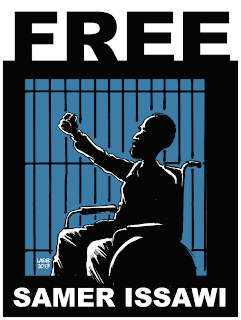Join us to protest the illegal detention and torture of Palestinians by the Israeli Army. Currently there are over 5000 Palestinian prisoners in Israeli military prisons, including 170 administrative detainees, 12 women and 185 children.
Some of these prisoners have been on hunger strike for months to protest their illegal detention.
Please Join us to demand freedom for all Palestinian Political prisoners.
When: Saturday April 27, noon - 2pm
Where: Westlake Park, downtown Seattle
Thank you for your support and hope to see you there.....
Amin Odeh
"Stand up for what is right,even if you are standing alone"







